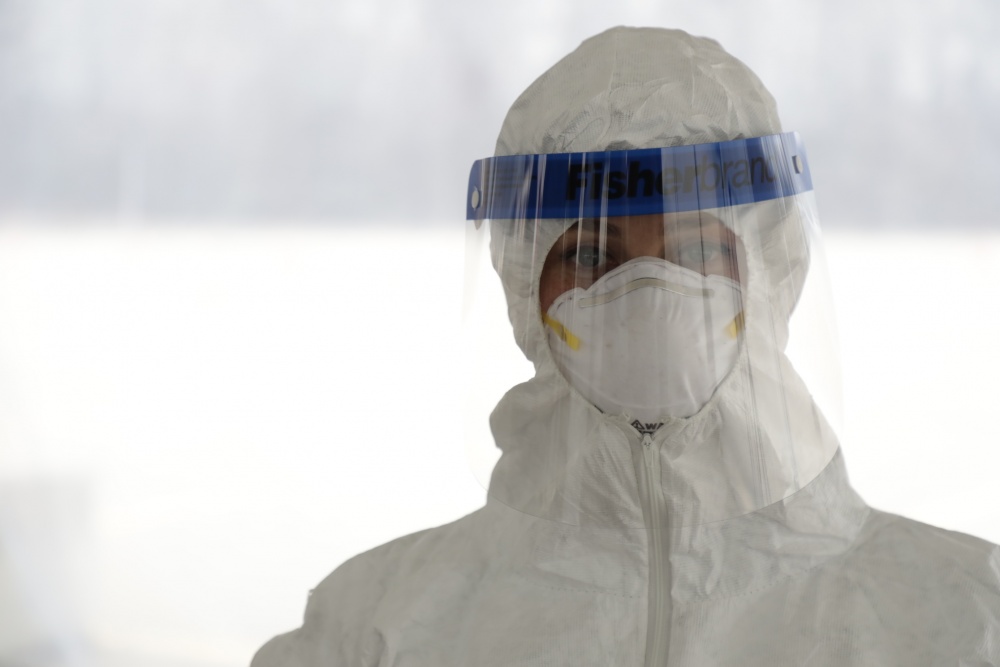
Gender and the Covid-19 pandemic
Amid the coronavirus outbreak, a number of commentators have stressed the need for gender analysis of the issue. Writing for The Atlantic, Helen Lewis discusses the ways in which a pandemic magnifies social inequalities and has different impacts on women than on men. Given how many people now need looking after (pandemic patients, the elderly, children), the structure of the workforce means that unpaid labour and caring duties will fall more heavily on women. Women make up the majority of healthcare workers, and many are in nursing roles with a higher level of exposure than doctors. Women are also more likely to be caring for family members at home.
Clare Wenham from the London School of Economics has highlighted trends from the Ebola epidemic and their relevance to the Covid-19 crisis. Many girls had to drop out of education, domestic and sexual violence rose, and more women died in childbirth. We can expect to see similar effects this time in both developed and developing countries if policymakers continue to adopt a gender-neutral approach.
The Women, Peace and Security Centre at LSE has been running a ‘Gendering COVID-19’ series exploring the realities for women living through this pandemic and the increasing importance of the WPS agenda.
International Women’s Day 2020 marked by celebrations and protests
Celebrations and protests were held across the globe on International Women’s Day on 8 March. In Pakistan, women managed to hold rallies in cities across the country despite court-filed petitions seeking to stop them, and in Turkey, riot police fired tear gas at people trying to mark the day by marching along Istanbul’s main street. Strikes and protests also took place in countries such as Columbia, Brazil, Chile and Argentina.
In Mexico, tens of thousands of women went on strike and joined marches to protest violence against women and government inaction to prevent it. Mexico has long failed to deal with a culture of entrenched machismo and violence in the country has been escalating, with the number of femicides increasing by 10% in 2019. The rising death toll of women and girls targeted for their gender is inspiring new passion for the feminist movement.
Women in the South Sudan resettlement project
The UN Mission in South Sudan has focused on local women’s groups in its resettlement project, after entire communities were displaced following intercommunal clashes last year. As part of a campaign to resettle returnees in the Rumbek North area, UNMISS has provided ox ploughs to work the land. The tools were handed out to women’s groups, as local tradition dictates that girls and women are the ones responsible for feeding their families.
Women are the key drivers behind Africa’s agricultural production and food security. An independent study has shown that they contribute 74% of the monthly agricultural income, 62% of the labour, and 65% of the household activities in countries like Sudan and South Sudan. Despite women’s integral role in peace and food security, Ingrid Kircher argues in an Oxfam report that gender inequality continues to pervade the region, with women lacking adequate legal protections and access to resources and education.
EU launches new gender strategy
The European Commission has published a new gender equality strategy for 2020–2025. The core objectives are ending gender-based violence, challenging gender stereotypes, closing gender pay gaps and achieving gender balance in decision-making. Implementation of the strategy will involve incorporating gender perspectives and key actions in all EU policies and processes, both internal and external. The EU also has a gender action plan to promote gender equality in external relations. A new plan will be launched in 2020 and will be closely linked to the strategy. The EU is closest to gender equality in the areas of health and money, but work–life balance remains an issue.
Slow progress for gender equality in international security arena
The 2020 annual meeting of the UN Commission on the Status of Women and associated events were cancelled and replaced with a one-day meeting in New York due to the Covid-19 pandemic. Lisa Sharland, head of ASPI’s international program, took the opportunity to raise several concerns about the current status of women’s rights.
Despite steps forward worldwide, such as Australia’s appointment of its first ambassador for gender equality, Sharland argued that the advancement of women’s rights is often one of the first casualties during geopolitical crises, and pointed to the increasing fragmentation among UN member states on contentious issues relating to the WPS agenda. The article is part of ASPI’s annual WPS series which is currently running on The Strategist.
Indigenous women in war-torn Colombia
Internal conflict and a lack of government resources disproportionately affect Afro-Colombian and indigenous women. After Syria, Colombia has the second largest population of internally displaced people in the world and around 58% of them are female. Instability in the region has led to an increase in sexual violence, kidnapping and economic hardship. Groups like Ruta Pacifica are working for an end to conflict and gender-based violence, and the Cocomacia community council has established a gender committee to create financial opportunities for women in the Atrato region.
Examining human trafficking through the WPS lens
Women and girls are disproportionately affected by global human trafficking. According to Harvard researcher Darcy McConnell, place women in places affected by armed conflict and civil strife are at greater risk of being trafficked because of the use of strategic gender-based violence as a ‘weapon of war’. McConnell further suggests that the trafficking of women and girls shouldn’t be seen merely as a side effect of conflict under the realm of hard security, but rather as a standalone security threat that needs to be addressed by the international community.

